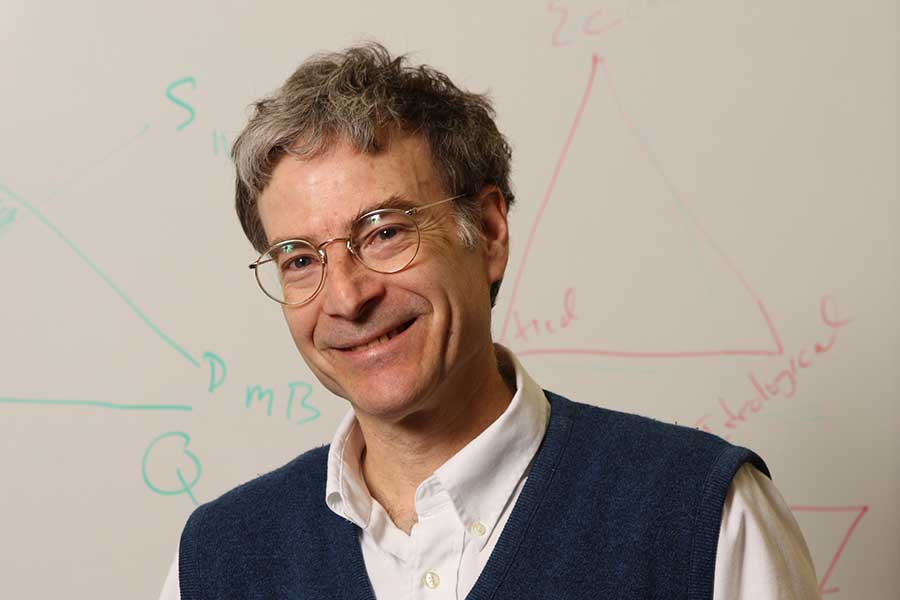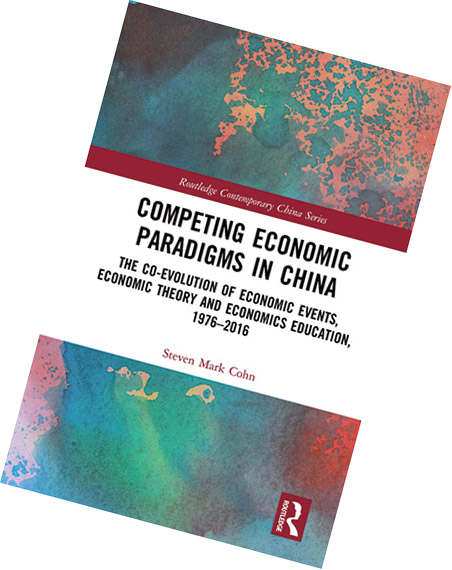
An almost 50-year fascination with China led economics professor Steve Cohn on a journey that has culminated in a book on the country’s economy.
In Competing Economic Paradigms in China: The Co-Evolution of Economic Events, Economic Theory and Economic Education, 1976-2016 (Routledge, 2018), Cohn, who holds the Charles W. and Arvilla S. Timme Chair in Economics, provides a unique look at the evolution of Chinese economic thought over the last four decades.
Cohn first became interested in China as a Peace Corps volunteer living in a Chinese community in Malaysia. But over the next 30 years, his academic focus took him in a different direction—the economics of nuclear power and theories of macroeconomics—which resulted in two books on the subject.
In 2007, he had the opportunity to again pursue his interest in the country when he and other Knox faculty were invited to spend two weeks in China through the Caterpillar China Project. That trip shifted the focus of his research to the Chinese economy.
You took courses to give you the background needed to pursue your research. Were you surprised at the support you received from Knox after taking what seemed like an abrupt turn in your research?
My ability to do what I’m doing has really been supported by the College, and I’m thankful. I think a lot of colleges wouldn’t have been as welcoming of [the shift in research] as Knox. But the College benefits because faculty are excited to try new things. I’m now a part of the Asian Studies program and teach a course in Chinese economy. It’s an example of doing more with limited resources.
Your research focuses on the economic evolution of China from a socialist economy “with Chinese characteristics,” based on Marxist economics, to a capitalist economy “with Chinese characteristics,” based on neoclassical economics. Why did your research take you in this direction?
I wanted to understand how an economy dominated by one approach was replaced by a different approach. It’s not like you turn a switch to get people to suddenly think differently. There are all of these different strands that create that shift, from reorienting students’ courses, to shifting discussion in the media, to re-engineering think tanks. It’s a complicated process. I was surprised that there wasn’t that much attention to this change. It’s a major intellectual revolution in the history of ideas.

Why do you think understanding China is critical to the modern world?
China is four times the size of the U.S. and has been growing at more than three times our rate. Whether we’re talking about the environment or resources or geopolitics, China is going to be a major part of the discussion. I think colleges like Knox, to prepare people for the future, have to be able to have some contact with China. The 20th century was the American century. It didn’t matter where you lived because it was going to influence you, whether it was the culture or the economy or military. You couldn’t get away from America in the 20th century. I think China is like that for the 21st century. So I think the College wisely needs to be a resource for understanding China, preparing people for interacting with a Chinese presence, and solving tensions between Chinese and American people. I think we’re going to need to expand our treatment of China because of its centrality to the future.
Steve Cohn is the author of two other books, Reintroducing Macroeconomics: A Critical Approach (2007), and Too Cheap to Meter: An Economical and Philosophical Analysis of the Nuclear Dream (1997). In addition to economics, Cohn is a member of the Asian Studies, environmental studies, and the peace and justice programs.